To help Aboriginal and Torres Strait Islander corporations understand what Data Sovereignty means and why it matters...
Waltja’s strong financial governance

Waltja Tjutangku Palyapayi Aboriginal Corporation is innovative in their generation of income and raises their funds through competitive tenders, grants, partnerships, and their own fundraising. Waltja directors are careful in their investments, and plan for the long-term sustainability of the organisation. Thanks to Waltja’s careful financial management, the organisation has acquired assets such as the lands that serves as their ‘home’ in Alice Springs, their Kungka Kutjarra property on the town’s outskirts, and investment savings. These savings are managed by the directors, who can allocate them to targeted areas as needed. Savings can also be used to supplement their emergency relief service, which Waltja provides to families in need on behalf of the government.
Waltja also have an art-based social enterprise, Tjutangku Tjukurrpa which means “Everyone’s Dreaming Stories”. Individuals from remote Central Australian communities create artworks, including carvings, bead jewellery, and paintings. They earn a standard payment for their works, and this amount is set by the Waltja directors. Through the creation of artworks, participants in the social enterprise are “strong in their own identity” and have ownership of the stories they tell.2Waltja Tjutangku Palyapayi Aboriginal Corporation, “Gallery Shop: Tjutangku Tjukurrpa,” accessed 2024, [link] As well as keeping culture strong, the social enterprise helps support Waltja’s work. As of 2024, Tjutangku Tjukurrpa is supporting two Indigenous trainees, and a local Arrernte man serves as team leader.

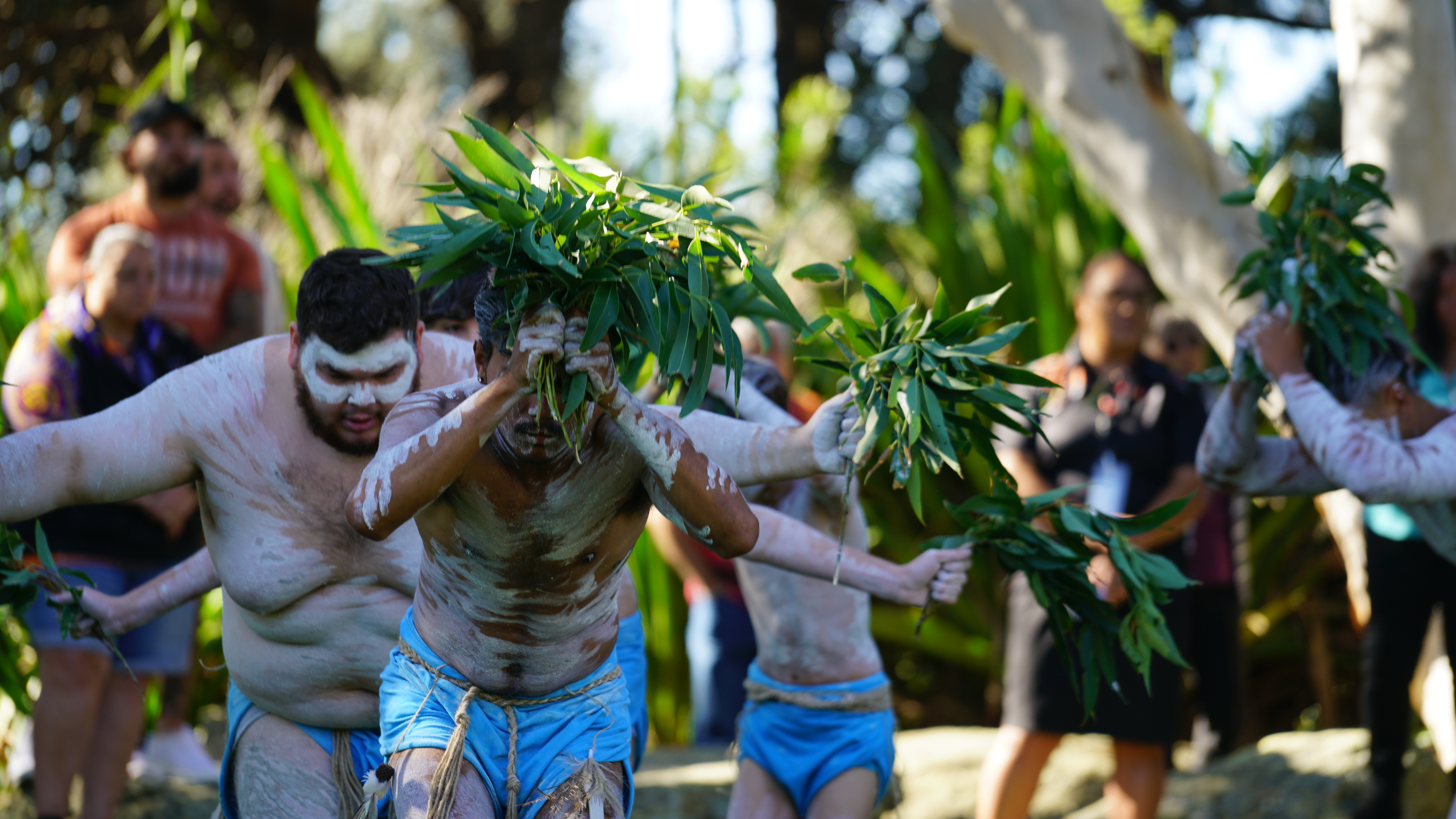
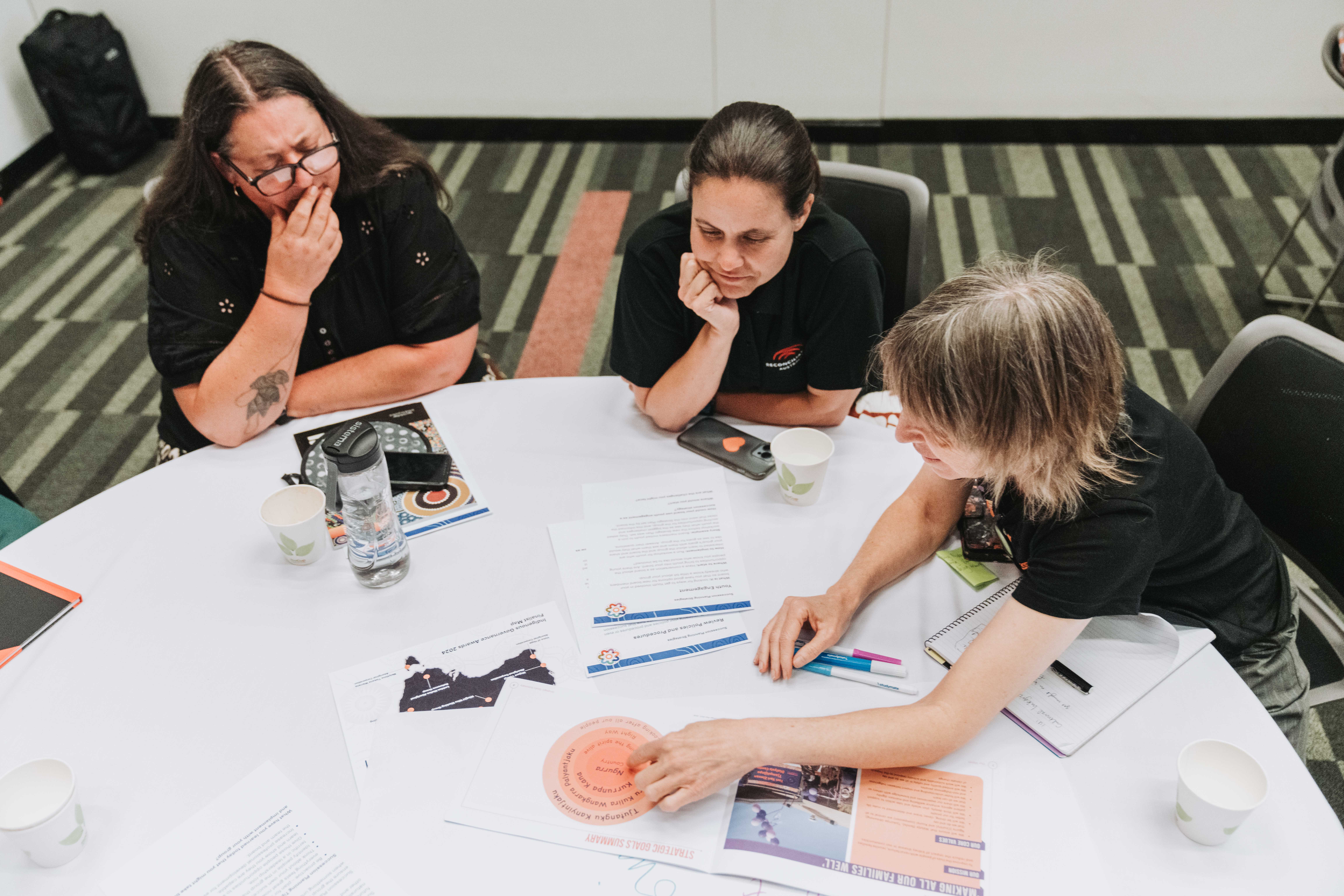
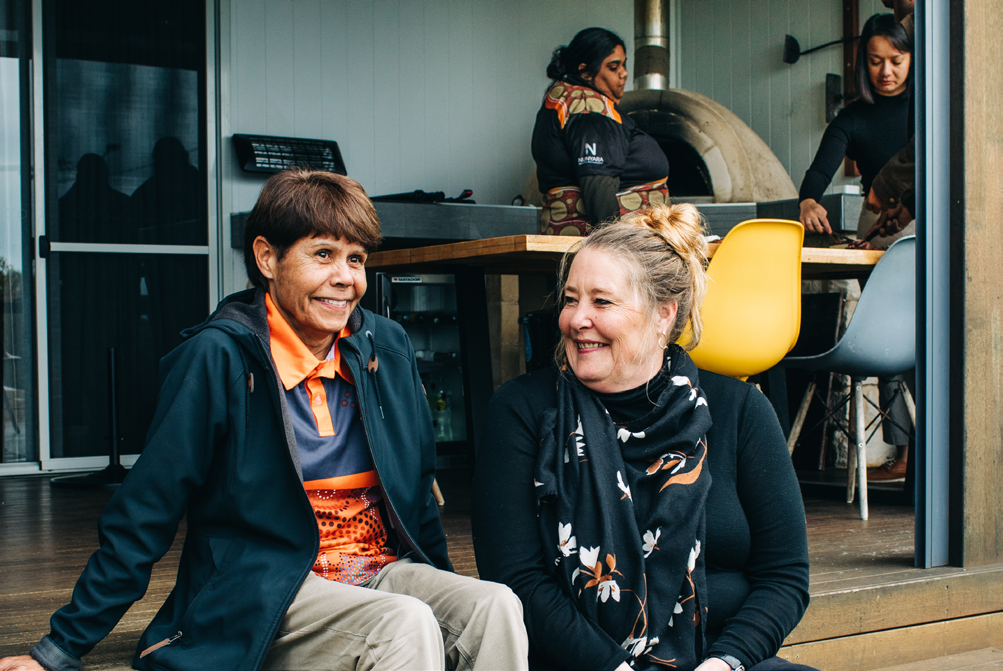

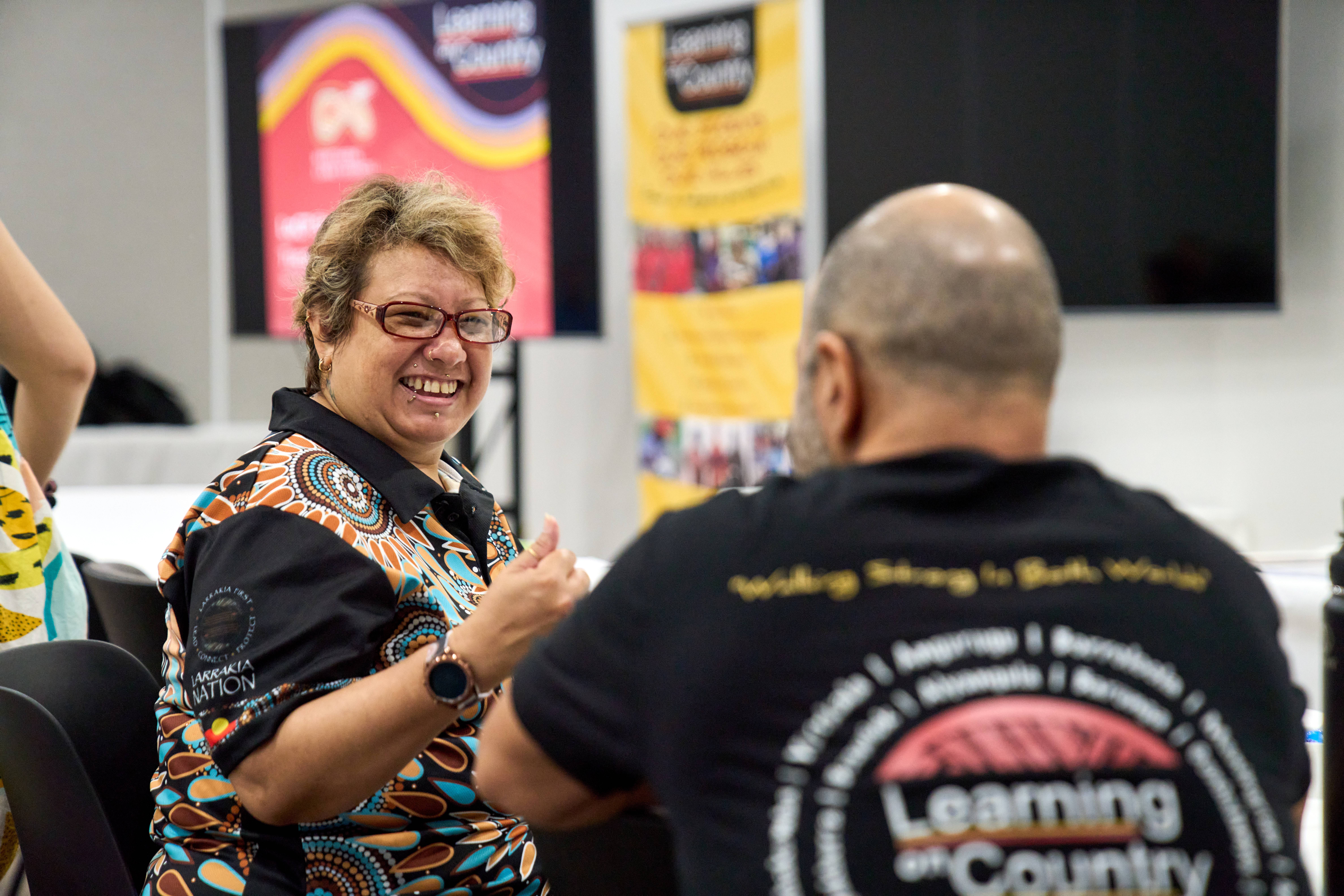
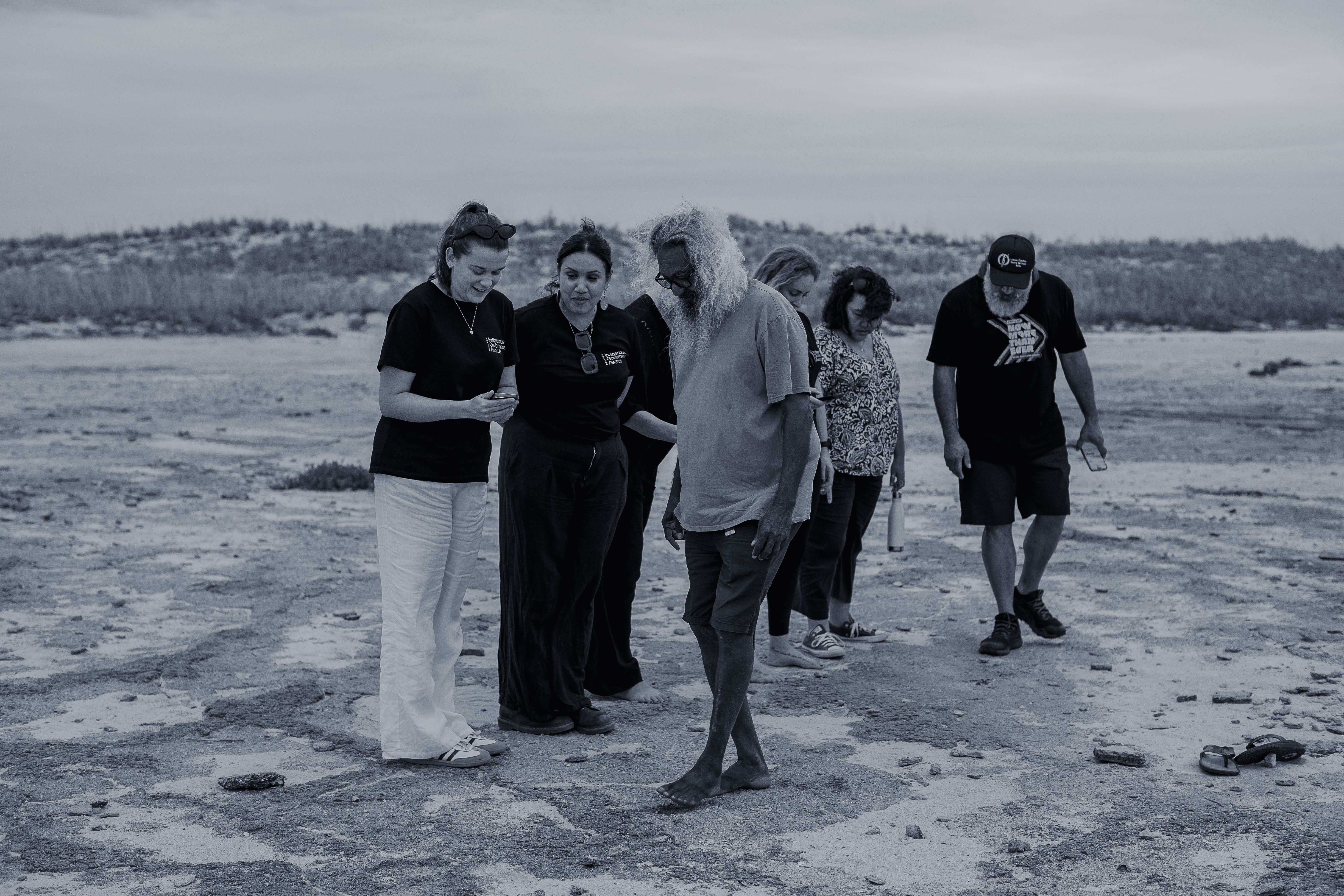
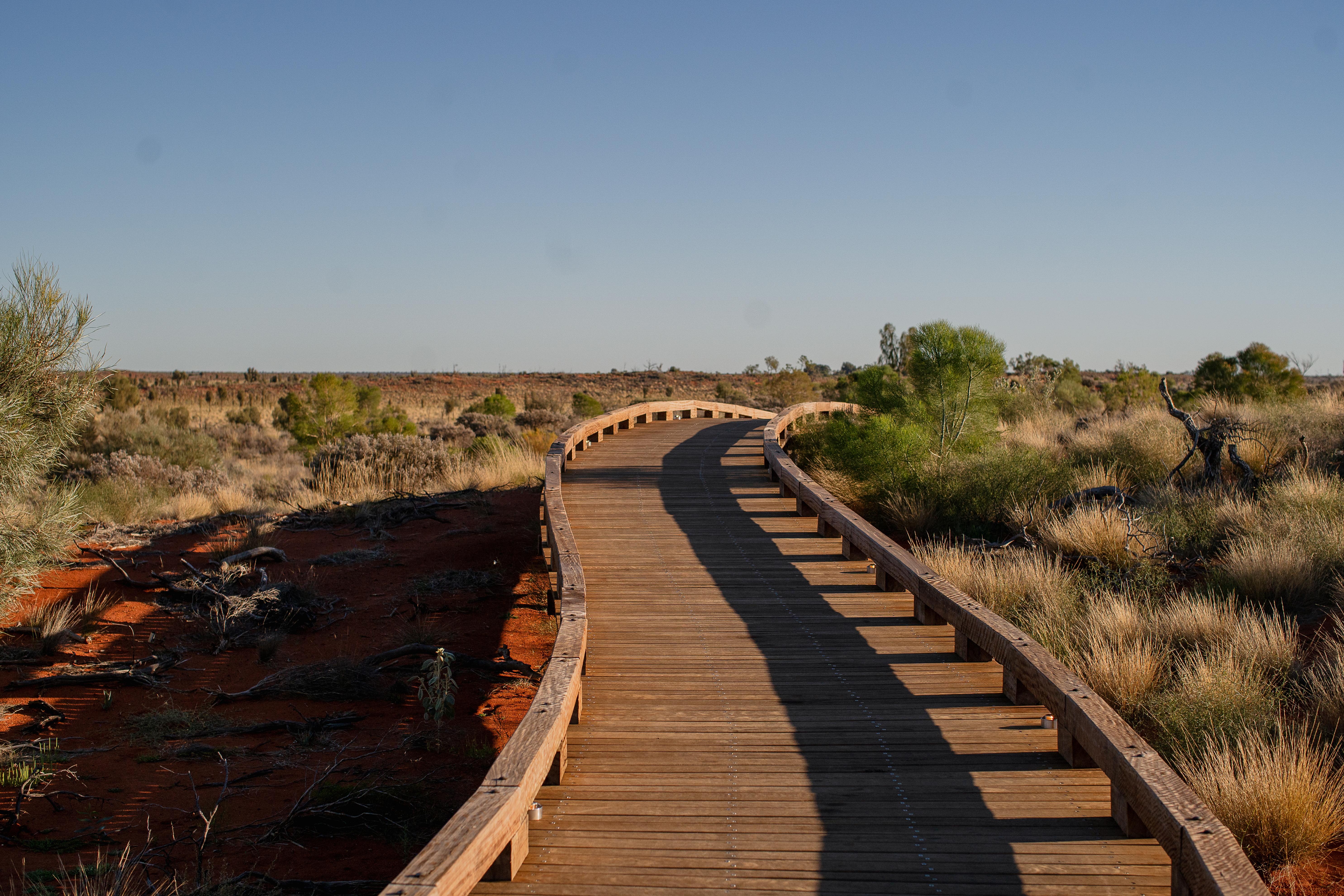
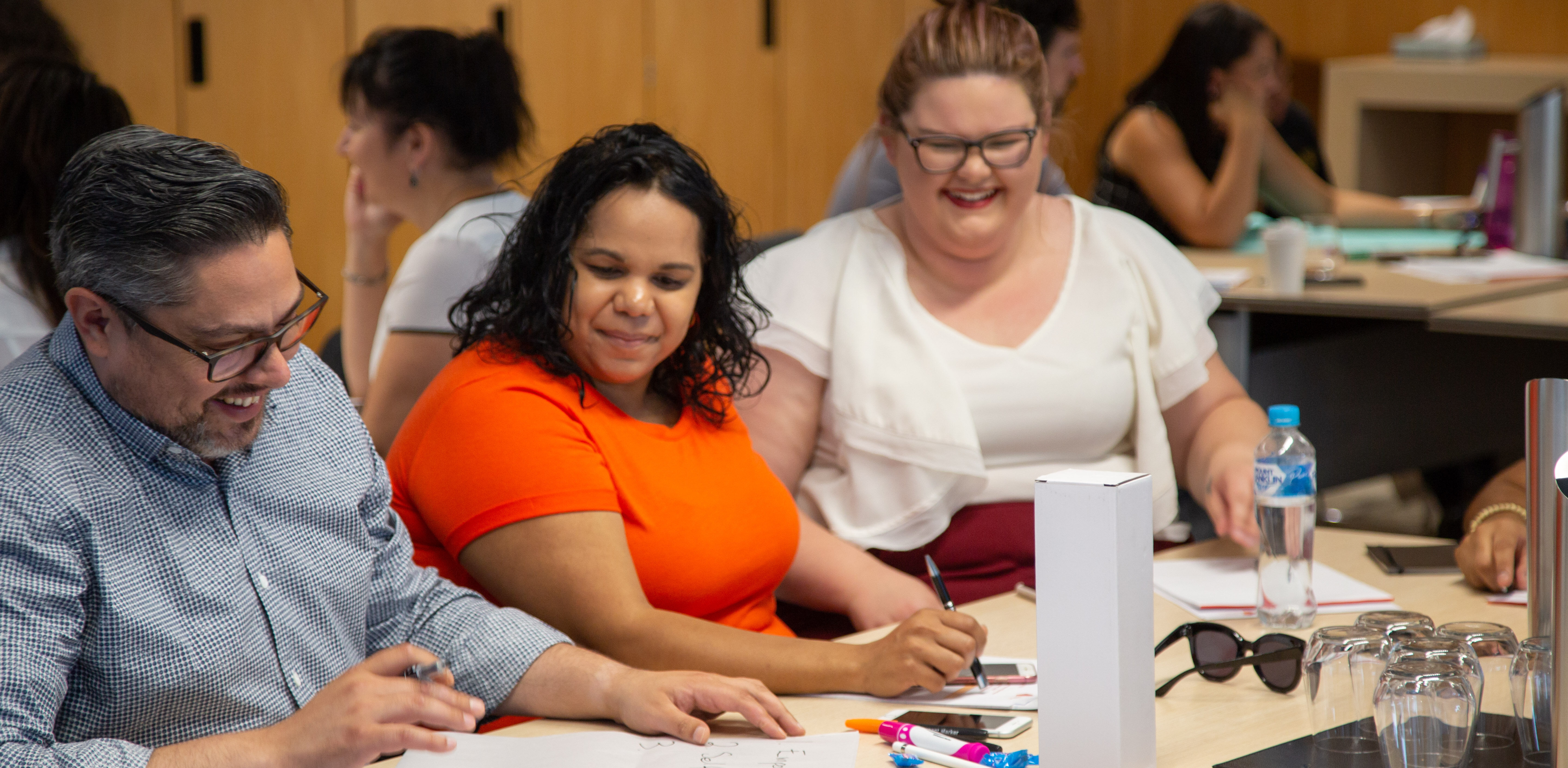
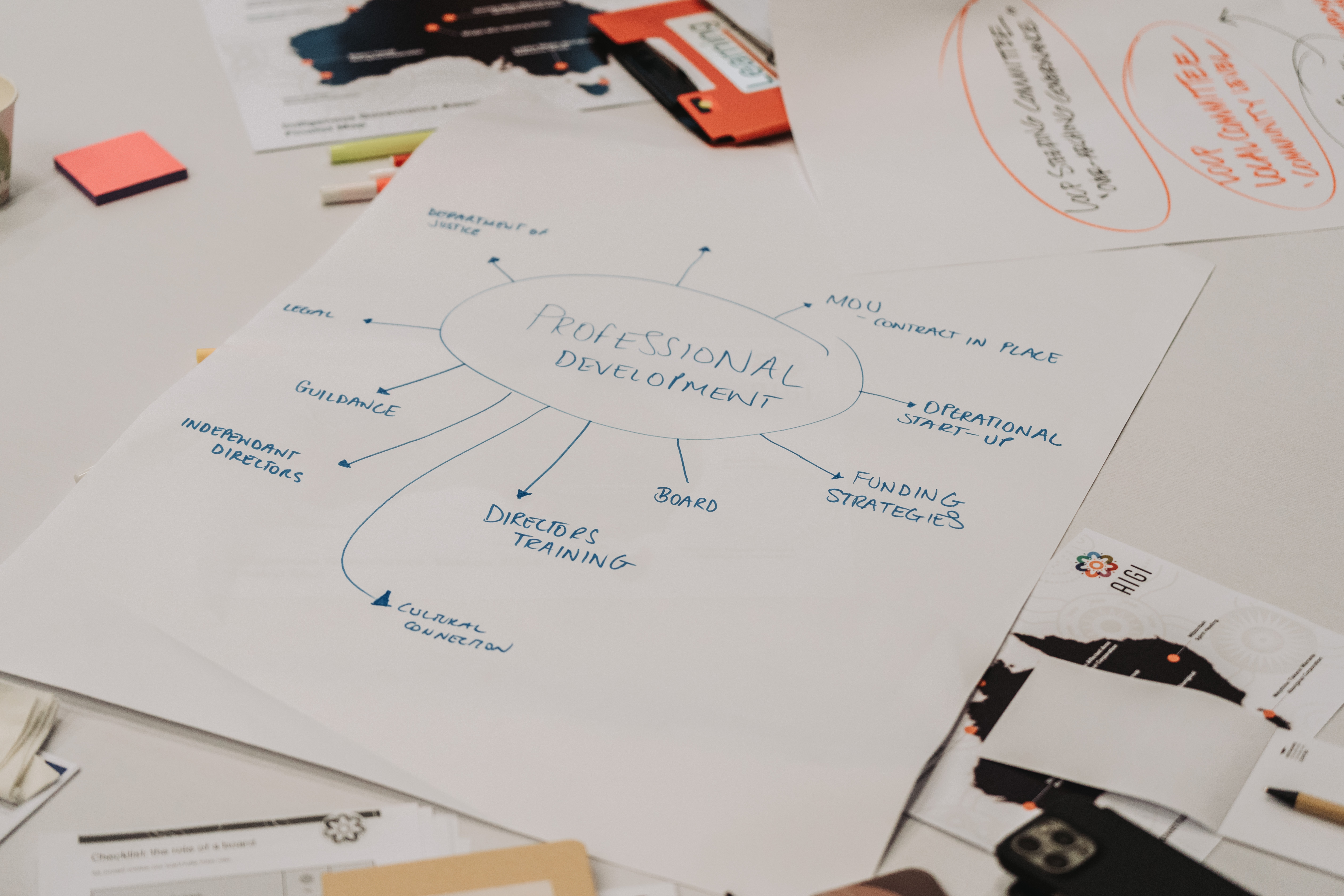
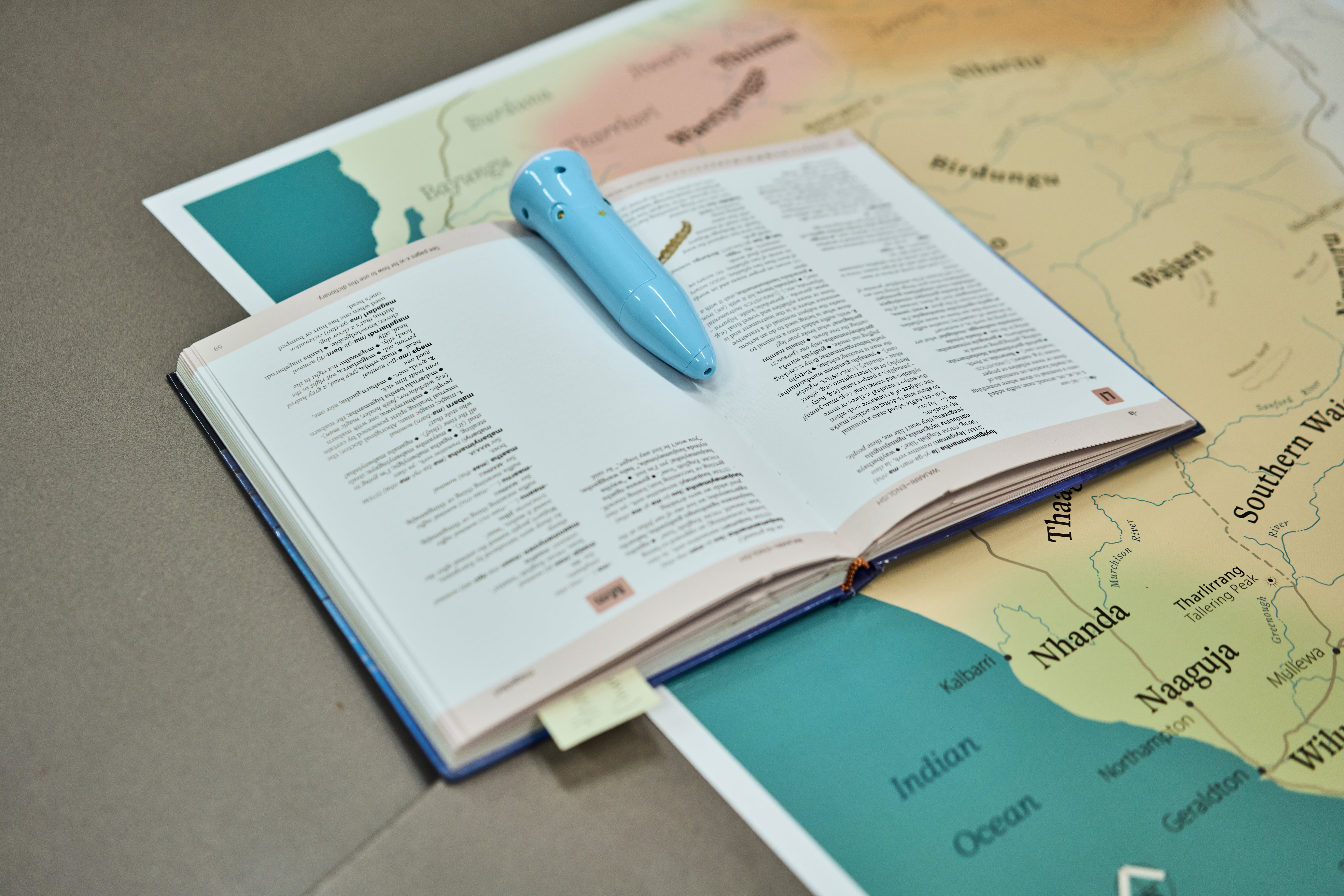

.png)

